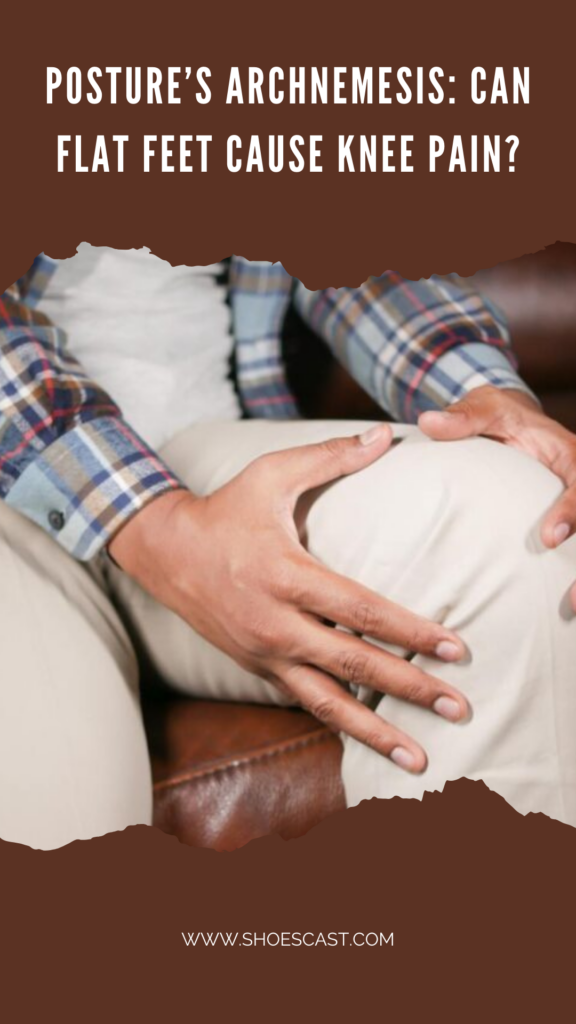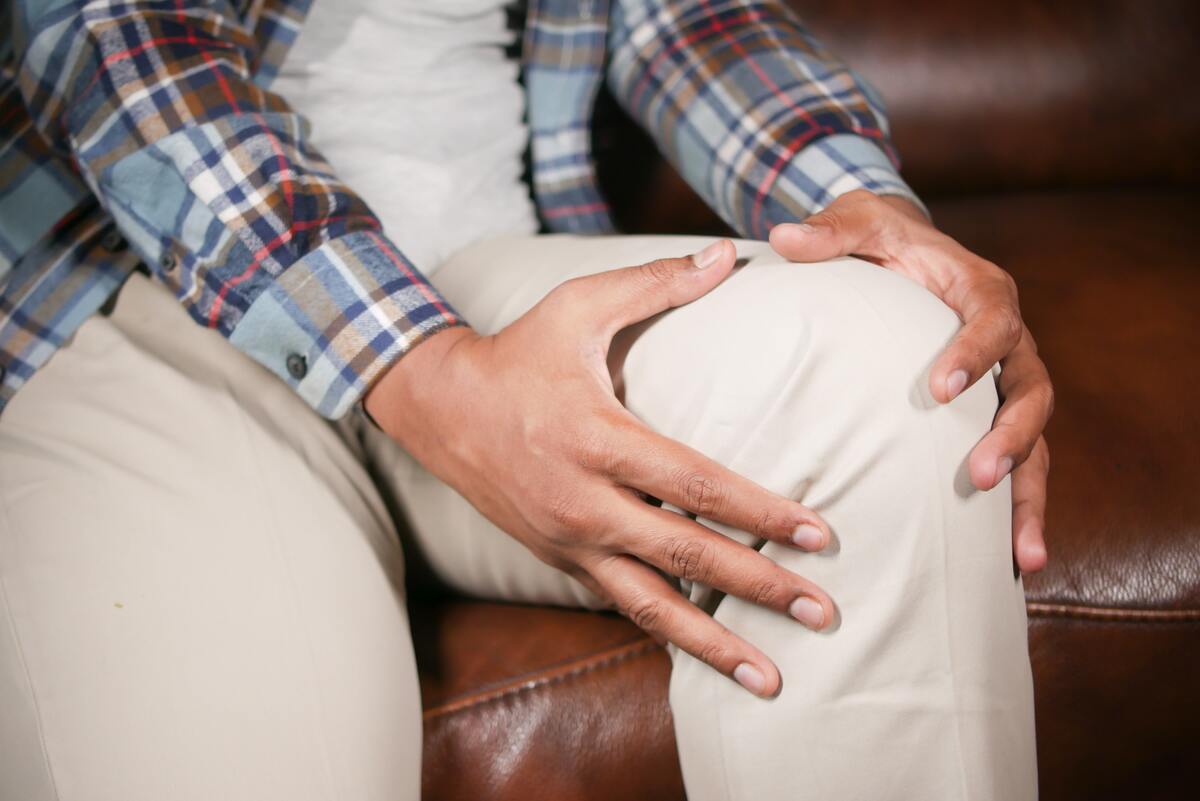Whether you’re spending most of your time standing, walking, or working out, your flat feet can cause damage to parts of your body you didn’t know were connected. If you start noticing sharp, stabbing pain around the knee area, chances are your flat feet are to blame. Can flat feet cause knee pain, then?
Flat feet are one of those things you don’t think about until someone points out that your arches are non-existent and that your feet roll inwards when you’re going about your day. For whatever reason, your feet decided to do their own thing and leave you to deal with the consequences.
What are flat feet? What causes flat feet?
Oh and, can flat feet cause knee pain so strong that you want to take the rest of the day off and get to your doctor? On one hand, the arches of your feet are starting to become your archnemesis. On the other, there’s a way you can battle that.
More on that down below!
What are flat feet?
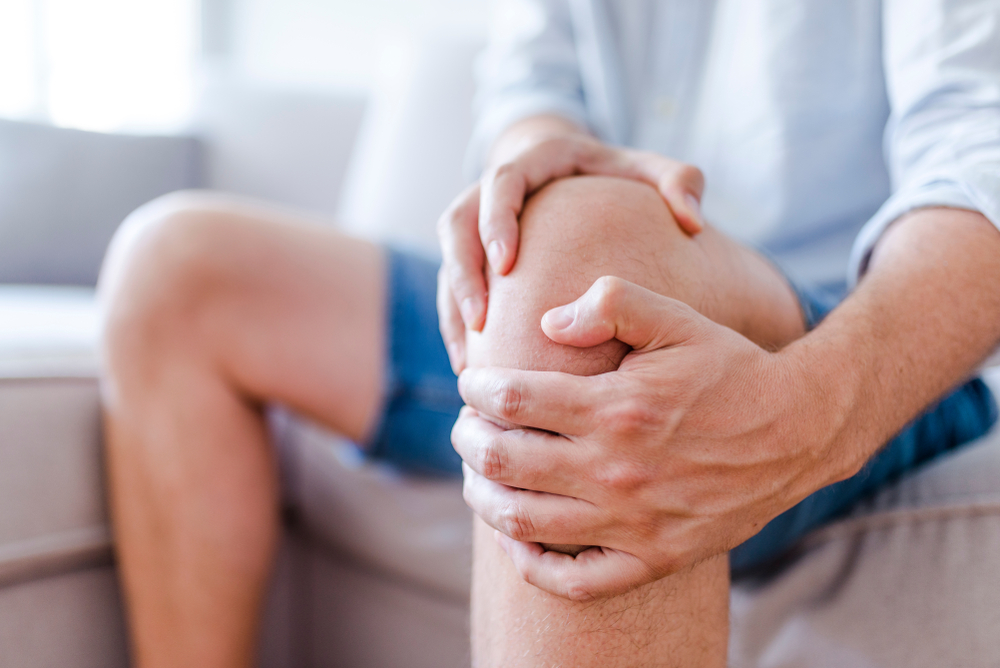
Take a peep at your friends and family members’ feet. Chances are you’re going to see a noticeable arch on the side of each foot.
Arches are formed by the tarsal and metatarsal bones, as well as the interconnecting ligaments and tendons. And arches are supposed to be “arched” whenever there’s pressure on them.
Whether you’re standing, walking, or working out, your arches are supposed to “pop up” and create an arched shape. When that doesn’t happen and your feet appear to be flat against the floor, you’re suffering from flat feet.
Flat feet are defined by fallen or collapsed arches that can cause a myriad of foot problems when unaddressed over a period of time. What gives rise to flat feet, though?
What causes flat feet?
Flat feet aren’t always a cause for concern. With children younger than two or three, flat feet are a common occurrence because it takes time for the tendons to tighten and form an arch.
When the condition continues beyond the age of two or three, the child might need a doctor’s appointment to check what’s wrong. More times than not, though, flat feet are a consequence of genetics, the bones of your feet not growing properly, or stretching of the ligaments and tendons of your feet.
Other than that, some of the most common conditions connected to flat feet are Achilles tendon injuries, broken bones, cerebral palsy, diabetes, Down syndrome, high blood pressure, obesity, pregnancy, and rheumatoid arthritis.
Moreover, flat feet can be a consequence of poorly-fitting footwear, too. Whether you’re aware that your feet are flat or surprised by the sudden discovery, you’ve probably noticed a myriad of symptoms related to your condition. Welp, can flat feet cause knee pain?
Can flat feet cause knee pain?
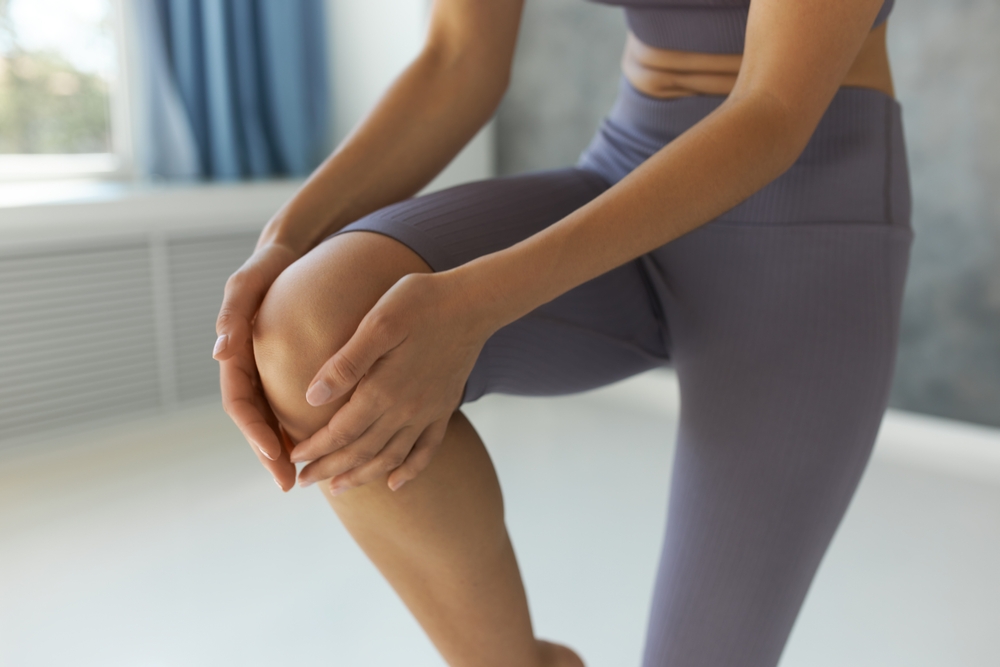
Now, here’s the thing – flat feet can cause knee pain, there’s no question about that. When you’re suffering from flat feet, your favorite Converse sneakers or your highest-quality Blundstone boots aren’t the only ones affected.
We’d go as far as to argue that flat feet can wreak havoc on pretty much every part of your body. Whether you’re experiencing pain and pressure in your ankles, knees, hips, or even your back, there’s a chance your flat feet are to blame.
With collapsed arches, your feet rotate inwards when you stand, walk, work out, or put pressure on them – but the remainder of your legs rotate inwards, too.
Because of that, your shinbones rotate inwards and pull your kneecaps inwards, creating a “knock-kneed” effect. But the problem occurs when these rotations continue putting pressure on your knees and causing your knees to become sore. What can trigger flat feet to cause knee pain, though?
What can trigger flat feet to cause knee pain?
1. Flat feet create a chain reaction, affecting different parts of the body
When you’re suffering from flat feet, your feet are struggling to support the weight of your body correctly.
Whether you’ve got other foot problems on your plate or your flat feet are the reason you get off on the wrong foot every day, there’s no question that flat feet can cause knee pain – and much more than that. Flat feet can trigger the rest of your body to act up to compensate.
2. Weight gain puts more pressure on the feet

Weight gain can trigger your flat feet to cause knee pain by putting more pressure on them. Where do we even start? We mentioned that your arches bear your body’s weight and act as your body’s shock absorbers when you aren’t wearing your favorite Hokas.
When your arches collapse, your feet struggle to support the weight of your body. When you gain weight, you put more weight on your feet than they’re able to bear. Because of that, your feet might start rolling inward and force your knees to roll inward, too. What a catastrophe, right?
3. Pregnancy triggers physical changes that affect the feet
We know what you’re thinking: When you get pregnant, you gain weight, and that’s the biggest reason pregnancy triggers your flat feet. We can’t argue with that, but the hormonal changes that come with pregnancy do more than you might think.
During pregnancy, your body makes more estrogen, relaxin, and progesterone. Depending on the circumstances, these hormones are meant to make your ligaments more flexible to support the weight of your growing baby and to help you during birth.
When your ligaments suddenly become more flexible, your flat feet might start overpronating and rolling inwards. The more they roll, the more your knees hurt.
4. Exercise puts a ton of stress on the feet
Moving, walking, and working out can make a world of difference for your flat feet – when you know what you’re doing.
If you’re suffering from flat feet, you want to strengthen your muscles to make up for the fact that your ligaments aren’t supportive and stable enough to carry the weight of your body. With that out of the way, though, certain exercises can affect your flat feet and trigger knee pain.
Cut back on heavy weights, focus on non-weight-bearing exercises, and target specific muscles each time you’re exercising. With these modifications, your knees are going to get better within the first few weeks.
5. Flat feet cover cartilage damage

Flat feet can cause knee pain, but there’s a chance that your flat feet managed to cover a much more serious problem.
When you suffer from damaged knee cartilage, you typically experience a myriad of symptoms – from short-term ones such as pain, swelling, and locking of the knees, to longer-term ones such as osteoarthritis.
But certain studies suggest that flat feet can cover the symptoms of cartilage damage and make you think that your knee pain comes from your flat feet. Before you blame your flat feet, contact your doctor and check whether there’s something wrong with your knees.
What are the treatment options for flat feet?
We do need to underline that you shouldn’t think twice to contact your doctor and ease your worries. Whether your knee pain comes from your flat feet or you’re developing some sort of condition that puts pressure on your knees, you’re better off consulting with your doctor.
With that said, these are the common treatments for flat feet your doctor might suggest.
1. Orthotics
Number one, you might need to get your hands on custom orthotics that will support your collapsed arches and make standing, walking, and working out more comfortable.
Over-the-counter orthotics are great, too, but you might need to trim them down to ensure they’re the right fit for your footwear. Superfeet Green High Arch Orthotic Support Insoles and Samurai Insoles Arch Support Shoe Insoles are great options to consider.
2. Physical therapy
With physical therapy, you might be able to reduce pain and pressure, correct your arches, and stop your flat feet from affecting your knees. Whether you undergo guided physical therapy or opt for stretches and exercises you can do at home, you’re guaranteed to notice a change.
3. Supportive footwear
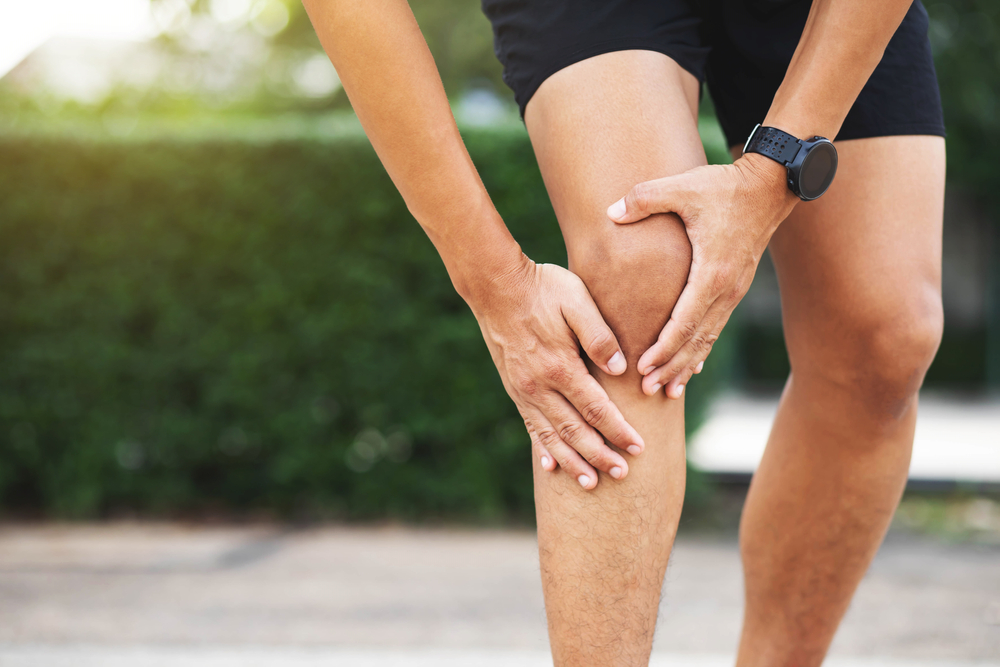
Supportive footwear can change your everyday life. When you’re suffering from flat feet, chances are you get tired quickly, you pass on opportunities because your feet are sore, and you experience sudden energy crashes throughout the day.
With the right footwear, you can even go hiking without worrying about your flat feet killing your knees. Supportive and protective sneakers such as Asics Gel-Kayano 28 or Brooks Ghost 14 are worth your money.
4. NSAIDs (nonsteroidal anti-inflammatory drugs) and RICE (rest, ice, compression, and elevation)
Depending on the severity of your condition, your doctor might prescribe medication to treat inflammation and reduce the discomfort of symptoms of flat feet.
With RICE, you can give your feet and knees a break and focus on getting better and undergoing physical therapy. We can agree that dealing with flat feet sucks, but there are ways you can make your everyday existence happier and healthier.
